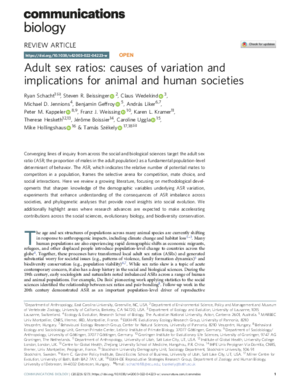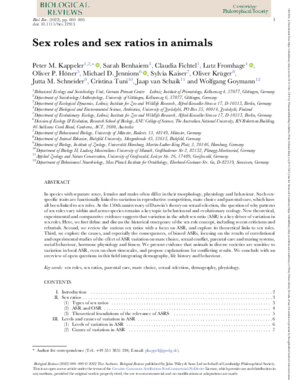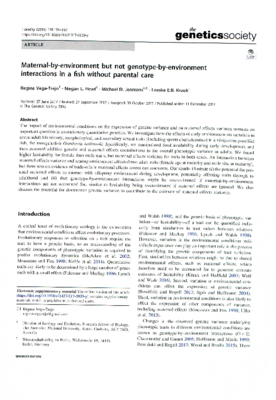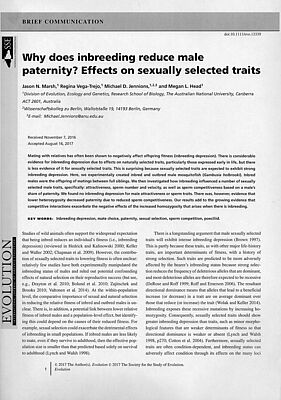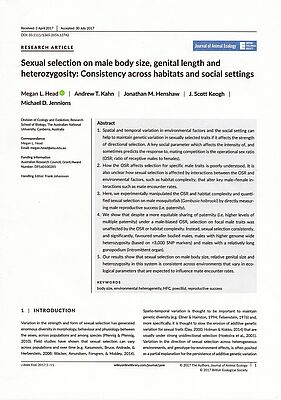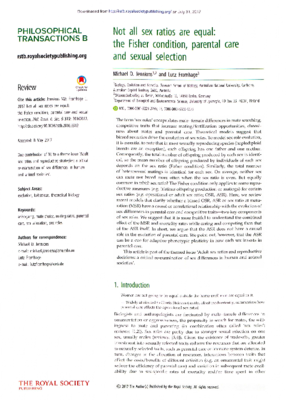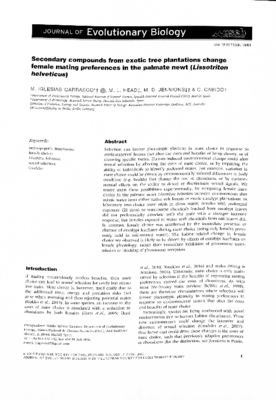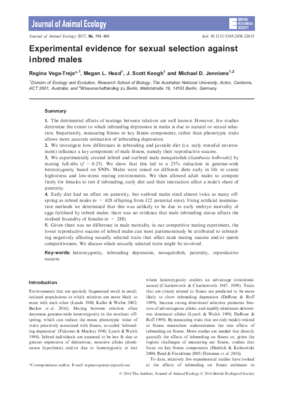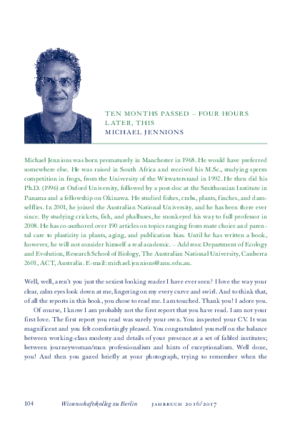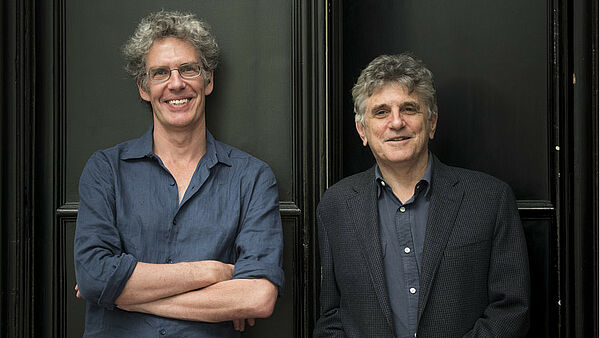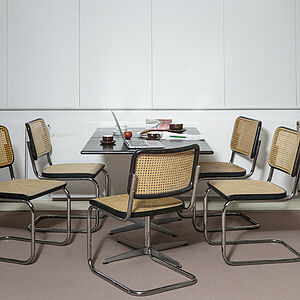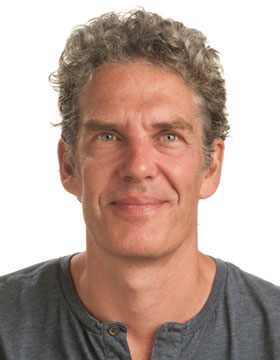
Michael Jennions, D.Phil.
Professor of Evolutionary Biology
Australian National University, Canberra
Born in 1968 in Manchester, United Kingdom
Studied Zoology at the University of the Witwatersrand, Johannesburg and Evolutionary Biology at the University of Oxford
Fellowship
EURIAS-Fellow
Focus
Causes and Implications of Adult Sex Ratio Variation in VertebratesProject
What are the Consequences of Differences in the Rate at Which Males and Females die? (And, Less Ambitiously, How Do We Save Science from Scientists?)
It is grist to the comedian's mill to stereotype the behaviour of men and women ("Why can't men find their keys?"). But there are biological truths. Cultural differences in gender roles exist, but in every human society it is women that fall pregnant and lactate; and, without exception, more men than women commit violent acts. Why? For biologists the situation is still more challenging as animal species vary hugely in "sex roles" (Who cares? Who is choosier when selecting a mate? Who fights for mates?). For example, in seahorses males become "pregnant", and in many fish only males provide parental care; in mammals infants are mainly cared for by their mothers; and in most birds both parents care for nestlings. Why do these differences exist? One factor that seems to be important is the adult sex ratio (ASR). I have been involved in developing theoretical models with mathematical biologists that point to the importance of the ASR in explaining variation in levels of male care. Reassuringly, initial data from shorebirds (and some on humans) has supported the model's predictions. This suggests that the ASR might explain changes in social practices in human societies (which is potentially important given sex-biased abortion, youth and adult mortality). However, a new unpublished model developed by my colleagues suggests that the ASR does not have a casual role - at best it is correlated with the true source of variation in sex roles. I will use part of my time to explain this revised model to a wider audience and to re-consider what empirical data we should collect to test it.Finally, I am becoming increasingly interested in, and concerned about, how science works. Science is the only way to acquire knowledge about the natural world, but current institutional structures are damaging (e.g. encourage publication bias). As with, say, tackling global climate change, the reward system often favours selfish acts that do not promote the greater good. What can we do to solve this problem?
Recommended Reading
Kokko, H., H. Klug, and M. D. Jennions (2012). "Unifying cornerstones of sexual selection: operational sex ratio, Bateman gradient and the scope for competitive investment." Ecology Letters 15, 11: 1340-1351.
Jennions, M. D. and M. Petrie (2000). "Why do females mate multiply? A review of the genetic benefits." Biological Reviews of the Cambridge Philosophical Society 75, 1: 21-64.
Head, M. L., L. Holman, R. Lanfear, A. T. Kahn, and M. D. Jennions (2015). "The extent and consequences of p-hacking in science." PLoS Biol 13, 3: e1002106.
Colloquium, 08.11.2016
Sexiness, Sex, Sex Roles and Science
Even though I have gray hair, my father still asks me when I am going to get a real job. He is proud that I am an academic, but he is genuinely puzzled as to why I waste my life studying fish, crickets, frogs, and things too obscure to name. Worse still, I am an evolutionary biologist: I am not even working out better ways to catch mice, or more efficient methods to feed the planet. Grown adults playing with animals... well, really! Perhaps your father (mothers, I find, tend to be more supportive) dimly shares the same sentiment about your own discipline, and almost certainly would about mine? I will try to convince you why my dad, at least, is wrong.
To start, I will place humans in a broader context and, in so doing, introduce the main reason we use mathematical models in biology. Next, I will provide the shortest explanation that I possibly can of how evolution by natural selection works. I want to ensure that everyone is familiar with the verbal shorthand my colleagues and I use.
I will then make a sandwich. The first piece of bread is a silly, hopefully entertaining, empirical study. My goal is to generate a short debate about scientific experiments.
Afterwards I will put meat atop the bread and talk about mathematical theory... but don’t panic. I will only use cartoons, not equations. This is a safe space. I will pose a few fundamental questions about sex and the sexes. These questions are basic - even if you failed biology at school you will understand them. They are related to facts that you are so familiar with that many of you simply accept that the world is thus. You might never have asked, "But why?" I would like you to answer these questions based on your own intuitions. This is where my talk could go horribly wrong. But what is life without a few risks? If you play along, your varied answers will provide the range of possibilities that we can explore. I hope that by the end of the talk you can use the same lines of reasoning that I do to explain the correct answers to others. In short, I want to convert you to seeing the world the way that evolutionary biologists do. You might then understand why we are often full of childlike wonder.
Finally, if there is time, my talk won't end up as an open-faced sandwich. To put a piece of bread on top, I will briefly discuss an issue that has begun to deeply worry me. The scientific method is the only way of acquiring reliable evidence to explain replicable events in the natural world (doubtless you will tell me of others approaches, over drinks I hope). But modern science, as a communal activity, is fragile. Its worth depends on how scientists interact with each other, and with how society rewards them for what they discover. In short, 'publish or perish' is a problem. I do not know how to fix science, but I am hoping you do. In some respects, your very lives depend on finding a solution.
Publications from the Fellow Library
Jennions, Michael (2017)
Jennions, Michael (London, 1998)
Made at Wiko 11/19/22
Made at Wiko 10/28/22
Made at Wiko 12/11/17
Made at Wiko 10/17/17
Made at Wiko 09/28/17
Made at Wiko 07/31/17
Made at Wiko 05/30/17
Made at Wiko 05/01/17
Made at Wiko 01/17/17
Köpfe und Ideen 2017
Putting the Kakapo on a Diet
a portrait of Michael Jennions, Peter M. Kappeler, Tamás Székely, Steven R. Beissinger by Manuela Lenzen
